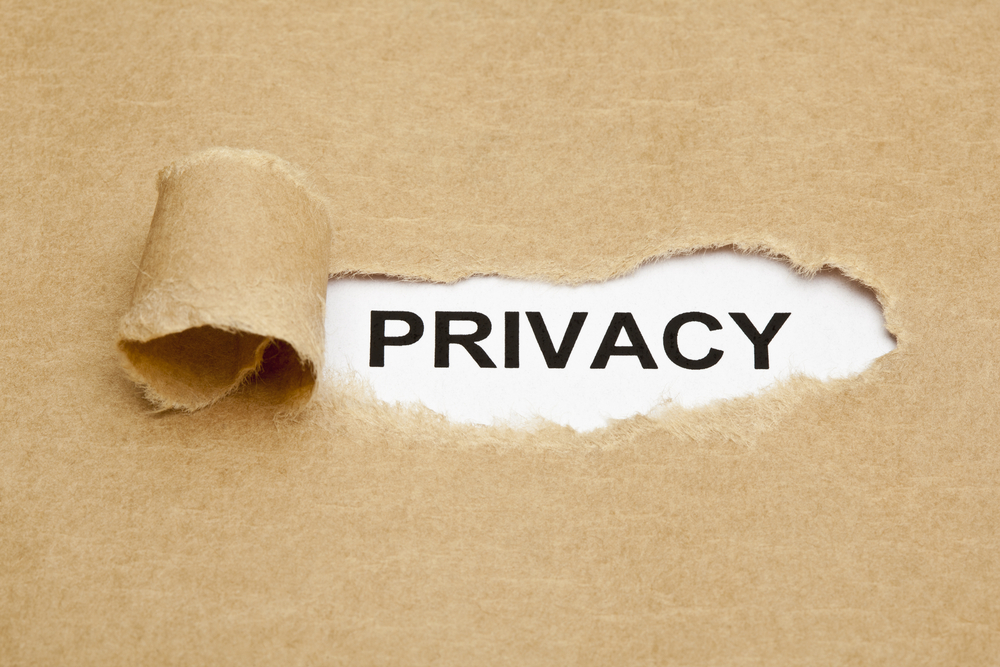You know that feeling when you read an op-ed on a pertinent issue and all of a sudden you realize there is no author listed? Your heart starts beating out of your chest. Your palms get sweaty. Pupils dilate. You have just been exposed to the immense danger of ANONYMOUS POLITICAL SPEECH.
No, of course, you don’t know that feeling. That would be crazy. But according to some, anonymous political speech poses a threat to the very fabric of American democracy.
The narrowing of civil liberties always occurs for noble sounding reasons. The phenomenon of governments exploiting real or perceived threats to the safety or well-being of citizens to strip away freedoms is a well-studied topic. Free speech and privacy rights are often the most vulnerable to these sorts of attacks.
Most recently, leaders across the world have been calling for online speech surveillance and censorship programs in response to terror attacks.
Another example of this phenomenon is the effort by activists, attorneys general, and politicians to curb the speech of climate change “denialists” whom they view as hampering efforts to prevent impending global disaster.
But one of the greatest and least recognized threats to free speech and privacy in the United States may be the perceived threat of so-called “dark money” in politics.
The term refers to money spent on campaign or candidate-related speech by groups that have long protected the privacy of their supporters. Because most spending by these groups goes towards non-political ends, these organizations do not have to publicly disclose the names, home addresses, occupations, and employers of their donors to the government.
If “dark money” seems like a particularly ominous term to describe money used to fund the exercise of fundamental First Amendment rights, it is. The term is designed to scare you. In yet another example of the classic political phenomenon described above, those who wish to restrict fundamental freedoms are peddling what they characterize as a grave threat as the justification for their efforts.
Except in this case, politicians and activists are asking Americans to give up their rights in order to protect you from. . . speech.
There is no legitimate reason to view anonymous political speech as dangerous or a threat to democracy. Anonymous speech was fundamental to the founding of this country and is protected under the First Amendment precisely because of the greater freedom it affords speakers. As Esha Bhandari, a Staff Attorney at the ACLU, explained in regards to a failed attempt by the federal government to learn the identity of an anonymous critic on Twitter, “Speaking anonymously about issues of the day is a longstanding American tradition, dating back to when the framers of the Constitution wrote under pseudonyms. The anonymity that the First Amendment guarantees is often most essential when people criticize the government, and this free speech right is as important today as ever.”
To be sure, there is something to admire in citizens who are willing and able to publicly stand up for what they believe. But that is not a reason to allow government to monitor the political beliefs and associations of citizens who wish to engage in advocacy while maintaining their privacy.
The fact of the matter is, when it comes to speech, anonymous often just means more free. Groups that preserve donor privacy are more willing to openly criticize candidates. That makes perfect sense. Think about how different the results of a mid-semester professor evaluation from students would be if every student had to write his or her name at the top. Or consider the fact that journalists began self-censoring following the Snowden revelations about NSA surveillance practices.
Regardless of how you feel about government surveillance of speech as a means of improving security more broadly, it’s undeniable that the mere knowledge of surveillance has speech chilling effects. The knowledge that you will appear on a government list (that your family, friends, neighbors, coworkers, and journalists also have access to) in perpetuity for supporting a nonprofit that engages in political speech is no different. Many Americans who fear retaliation or harassment for their beliefs will simply choose to sit on the sidelines.
When government attempts to silence its critics, we call that tyranny. When government demands to know the identity of its critics, we call that. . . transparency?
Do not be fooled by this effort to trample on your First Amendment rights.














